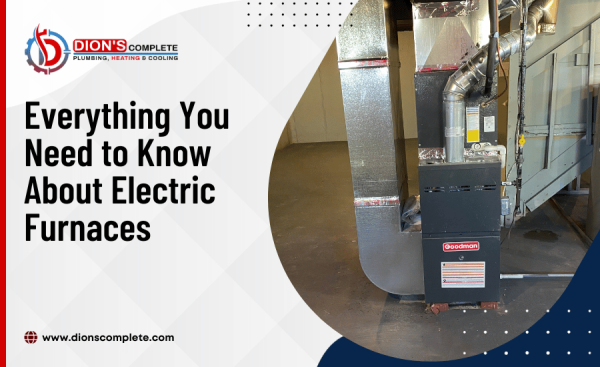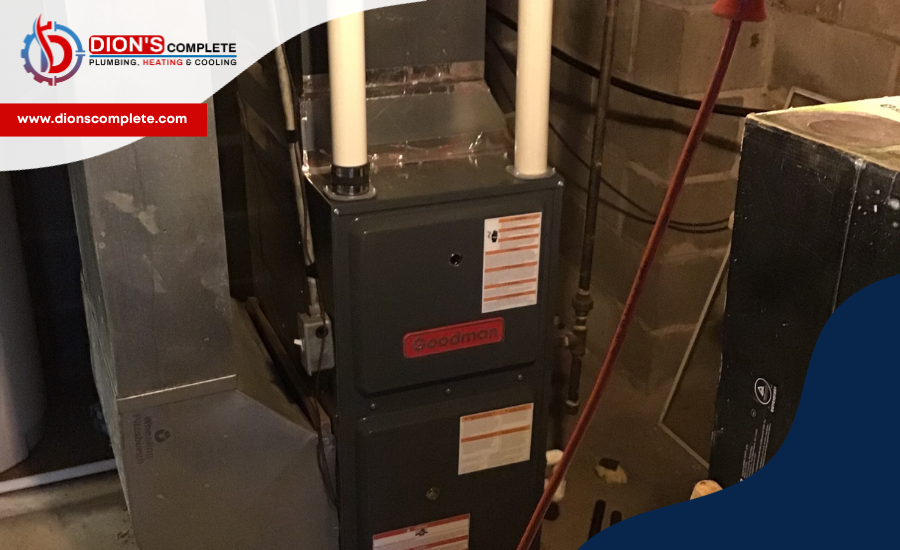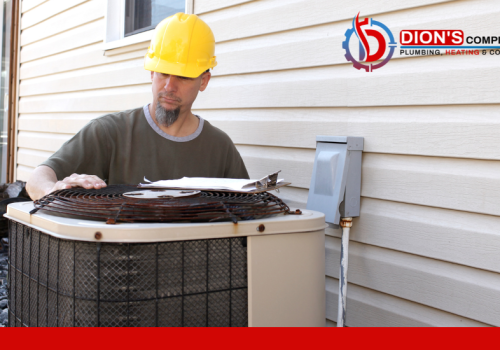When it comes to making homes cozy, electric furnaces are gaining a lot of attention from homeowners and potential clients. Even though gas furnaces are still popular in many places, it's important to understand how electric furnaces work. This is especially true in areas where gas furnaces are commonly used. In this article, we're going to dive deep into electric furnaces and electric furnace repair, talking about their benefits, how they work, what maintenance they need, and giving you smart advice to help you choose the right one for your home.
How Electric Furnaces Work
At the core of contemporary residential heating solutions, the concept of an electric furnace shines with its technological essence. Grasping the mechanics of its operation is pivotal for homeowners contemplating the adoption of an electric heating system or considering a whole house electric heater.
Understanding an Electric Furnace
An electric furnace represents a technological marvel that harnesses electrical energy to generate heat. Unlike traditional gas furnaces, which rely on combustion processes, electric furnaces employ heating units powered by electricity to produce the desired warmth.
Operational Mechanics
The operation of an electric furnace is rooted in the utilization of electrical currents to energize heating elements. These elements reach high temperatures, emitting heat, which is then circulated throughout the living spaces using a blower fan. This functional paradigm parallels the operation of common household appliances such as hair dryers or toasters, albeit on a larger scale.
Carbon Monoxide Emissions
One of the pivotal distinctions of electric furnaces lies in their safety attributes. Unlike their gas counterparts, electric furnaces do not produce carbon monoxide, rendering them devoid of combustion-related emissions and associated hazards.
Benefits of Electric Furnaces
When evaluating the choice of an electric furnace for house purposes, a constellation of advantages emerges, catering to homeowners seeking an effective and dependable electric heating system.
- Energy Efficiency: Electric furnaces stand as exemplars of energy efficiency, utilizing the majority of the consumed electricity to generate heat, minimizing waste.
- Safety Considerations: A distinctive advantage of electric furnaces is their impeccable safety record. Unlike gas furnaces, which involve combustion, electric furnaces are devoid of combustion-related risks, including carbon monoxide emissions.
- Quiet Operation: Central electric furnaces operate unobtrusively, ensuring a tranquil residential ambiance unmarred by excessive noise.
- Precise Temperature Control: The inclusion of electric heating units affords homeowners precise control over the indoor temperature, allowing for tailored comfort.
- Installation Simplicity: Unlike gas furnaces, electric furnaces do not require ventilation systems such as chimneys or flues, simplifying the installation process.
Comparing Electric Furnaces with Gas Furnaces
For individuals at the crossroads of selecting a heating system, undertaking a comparative analysis between electric and gas furnaces unveils a comprehensive landscape of insights that facilitate informed decision-making.
- Efficiency Distinctions: Electric furnaces hold the upper hand in energy utilization efficiency. They effectively convert the majority of the consumed energy into heat, whereas gas furnaces tend to have comparatively lower efficiency rates.
- Financial Considerations: The choice between electric and gas heating is influenced by a cost analysis that juxtaposes electricity rates against gas tariffs, shaping the financial dimensions of the decision.
- Maintenance Complexity: The maintenance regimen for electric furnaces is notably simpler than that of gas furnaces due to their less intricate mechanical components.
- Suitability Factors: The suitability of each type of furnace is influenced by regional considerations, encompassing climate patterns and the reliability of power sources.
Investment and Maintenance
Navigating the ins and outs of financial investment and the durability of heating systems provides a wealth of insights that guide prudent ownership and maintenance practices for electric furnaces.
- Cost Implications: The cost structure of an electric furnace encompasses variables such as model specifications, heating requirements, and optional features, each contributing to the final price tag.
- Longevity and Resilience: The lifespan of an electric furnace can be significantly prolonged through consistent maintenance. Timely repairs and regular checks play an instrumental role in sustaining the furnace's longevity and operational efficiency.
- Maintenance Protocols: To ensure the optimal performance of your electric heating unit, engaging professionals for annual inspections and comprehensive component evaluations is recommended. For those inclined toward hands-on approaches, a regime of do-it-yourself maintenance tasks, including filter replacements and routine cleaning, can significantly contribute to system upkeep.
Making the Right Choice for Your Home
The journey toward selecting the most fitting heating system for your dwelling is guided by a spectrum of considerations, each casting a distinct light on the path forward.
- Climate Considerations: Regional climatic conditions hold sway in shaping the ideal heating solution for your residence, setting the tone for the level of warmth required.
- Economic Dynamics: The financial dimension of the decision is influenced by the interplay between electricity costs and gas prices, as each contributes to the overall expenditure associated with heating.
- Architectural Alignment: The compatibility of your home's infrastructure with an electric heating system comes into play, impacting the feasibility of installation and any necessary modifications.
- Individual Comfort Preferences: The personal yearnings for comfort and warmth exert influence over the decision, aligning the chosen heating system with the desired residential ambiance.
- Professional Guidance: Seeking counsel from experts in the realm of heating systems can be likened to consulting architects before embarking on a significant construction project. Their insights, combined with your aspirations, refine the selection process, resulting in an informed decision.
How Dion's Complete Can Help
In the domain of plumbing, heating, and cooling solutions, Dion's Complete emerges as a furnace repair company that is a beacon of expertise, dedicated to illuminating the path for discerning homeowners and potential clients.
- Expertise and Proficiency: Our mastery extends across a comprehensive spectrum encompassing plumbing, heating, and cooling domains. Our expertise serves as the cornerstone upon which your aspirations for residential comfort can be realized.
- Tailored Advisory: Residents of Brighton, Michigan, are met with tailored counsel that seamlessly integrates their unique needs and circumstances. Our guidance is marked by its personalization and commitment to achieving your objectives.
- Holistic Service Spectrum: At DION'S COMPLETE, our offerings transcend mere advice. A comprehensive suite of services awaits, addressing every facet of heating and cooling requirements.
Frequently Asked Questions
What Makes Electric Furnaces More Environmentally Friendly Than Gas Furnaces?
The distinct environmental advantage of electric furnaces lies in their negligible emissions and their inability to produce carbon monoxide, establishing them as a responsible and ecologically conscious choice.
How Often Should I Get My Electric Furnace Professionally Checked?
The recommended frequency for professional inspections of your electric furnace is on an annual basis, conducted prior to the commencement of the heating season. Also, when your furnace is making weird sounds it is an indicator that your electric furnace is due for a check up.
Are Electric Furnaces Suitable for Regions With Frequent Power Outages?
Electric furnaces, reliant on a continuous supply of electricity, may present limitations in regions prone to power outages. In such locales, contingency plans for alternative heating solutions are prudent.
How Can I Optimize the Energy Efficiency of My Electric Furnace?
The pursuit of optimal energy efficiency involves a combination of professional servicing, encompassing filter replacements and thorough assessments, along with personal initiatives such as maintaining thermostat batteries and ensuring cleanliness.
What Are the Signs That My Electric Furnace Needs a Replacement?
Indicators suggesting the need for furnace replacement include recurrent breakdowns, escalating energy bills, and inadequate heating performance. These signs collectively signify that the time is ripe for a new chapter featuring a modernized electric heating unit.







